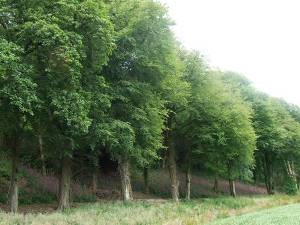 The UK’s woodlands will be “hugely important” in efforts to tackle climate change and cope with its impacts, the Forestry Commission said as it launched the most comprehensive survey of our forests ever undertaken.
The UK’s woodlands will be “hugely important” in efforts to tackle climate change and cope with its impacts, the Forestry Commission said as it launched the most comprehensive survey of our forests ever undertaken.
Tim Rollinson, director-general of the Forestry Commission, said the massive, five-year survey of 15,000 woodland sites across England, Scotland and Wales would help plan for “an uncertain future” brought on by a changing climate.
British woods and trees will not only play a key role in storing carbon and cutting the emissions causing global warming, but also help wildlife and people cope with impacts such as hotter summers and increased risk of flooding.
The survey will provide “crucial information” on the extent and health of British woodlands, including how much carbon they store, while in the future, surveyors will return to each of the sites to monitor changes.
The Forestry Commission has already seen a number of changes to woodlands in Britain, such as greater use of wooded areas for recreation and increased planting of more urban forests, to give access for city-dwellers to woods.
And Mr Rollinson said he expected to see other changes over the next 20 years, including the planting of more woodland and changes in management to maximise the carbon storage it can deliver.
The Government recently said it wanted to see 10,000 hectares of new woods planted each year to store carbon, as part of the Low Carbon Transition Plan which aims to cut the UK’s emissions by 80% by 2050.
Mr Rollinson said: “What we’re doing with this survey is planning for an uncertain future, and that future is strongly linked to a changing climate.
“There’s no doubt that woodland can be a substantial help with climate change, and we want to see more trees being planted.
He went on: “There is a lot of focus on the mitigation issue, which is very important, but adaptation is every bit as important. As a country we need our woodlands and trees, and they need to be well managed.”

